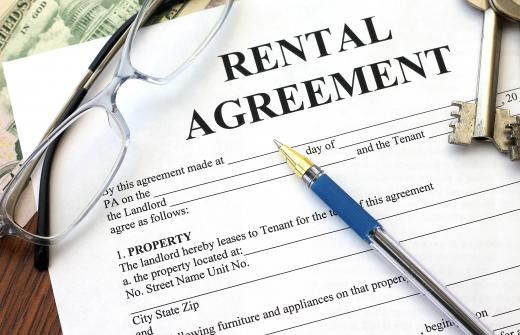Key money refers to an upfront payment made to a landlord to secure a lease on a rental property. It is sometimes paid in cash and is illegal in some regions, such as the United States, but is a perfectly acceptable business practice in some countries. Key money is more common in areas where housing is scarce and is considered extra compensation to the landowner before he or she hands over the keys. Security deposits are also called key money in some areas and may or may not be refunded when the lease expires.
The practice of asking for extra money is more common where rent control laws are in place. A landlord may offer to rent a residence or commercial building in exchange for key money, especially if neighboring communities do not enforce rent control, making regional rental prices high. Paying cash upfront assures the tenant of low rent that cannot be raised for the term of the lease. Some landlords will waive the payment to attract a desirable tenant to live in his or her property.

In Thailand, the term means different things. It can refer to a security deposit that is refunded if the property is left in good condition when the tenant moves out. Key money also refers to a bribe to a landlord who may lower the monthly rent in exchange for upfront cash. This allows the landlord to avoid paying taxes on part of his or her rental income. The custom is more common when commercial property is leased in Thailand.

The South Korean government also allows key money payments, except in low-income housing projects. Called jeongsei, which translates to “money in full,” the term typically appears in rental agreements. A tenant commonly gives the landlord 25 to 70 percent of the value of the residence when he or she signs the lease. No monthly payments are required, and the money is returned to the tenant, without interest, at the end of the lease period, which is generally two years.

Japan also permits similar payments, which are most common in traditional and large cities. The practice evolved in the 1940s when a housing shortage limited the number of rentals available. A deposit is usually part of the lease agreement and is equivalent to two monthly payments. Foreigners who live in Japan are typically charged a fee to rent in desirable areas.
_
